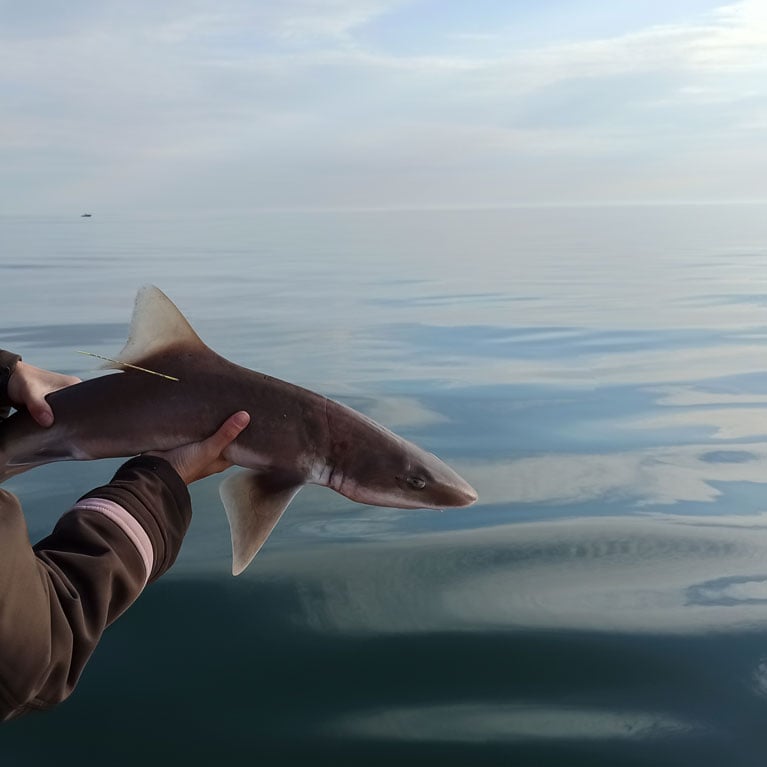Linking pollution and shark health in the Mediterranean
The position of most sharks as predators in the food web puts them at high risk of impacts by pollution, since longer-lived, larger-bodied animals that eat other animals tend to accumulate more toxins and pollutants throughout their lifetime. Licia is measuring the pollution levels in three shark species in the highly impacted Mediterranean Sea. She wants to understand whether the presence of pollutants is negatively affecting the health of sharks, with a view to adding concerns for the well-being of sharks to a discussion that is often dominated by the impact of bio-accumulation for human beings.
I grew up close to Venice, on the coast of the northern Adriatic Sea, a basin certainly not known for its crystal-clear water or coral reefs. Nevertheless, I have always been fascinated by the ocean and its inhabitants, especially sharks, rays, skates and even chimaeras. I don’t know where this passion originated, but I do know that since my primary school days I dreamed of becoming a shark scientist – and I made it! Learning that elasmobranchs (sharks, skates and rays) are facing severe population declines and are threatened by human activities triggered my interest in their conservation....
SHEROS: Sharks are not superHEROS! Which are the consequences of pollution for these animals?
This project aims to identify potential negative consequences for sharks’ health caused by the accumulation of pollutants in three commercially harvested shark species inhabiting the northern Adriatic Sea, which forms part of the Mediterranean.
Shark populations are declining worldwide. Unregulated exploitation by fisheries is a well-known threat, but pollution by humans may also jeopardise their conservation. Unfortunately, very few data exist regarding the consequences of pollution for the health of sharks, and this impairs the development and implementation of effective conservation measures. This project will provide the first data for the Mediterranean and will be fundamental to better managing the populations of the three threatened study species.
As top predators with a long lifespan, sharks accumulate high levels of pollutants that, in combination with overexploitation, pose a considerable threat to their survival. However, there is little information about sharks’ vulnerability to pollution. Most studies focus on the risks to humans who consume shark meat rather than on the negative consequences for the animals. The few data available suggest that important biological roles, including immune function, general health, reproduction and embryonic growth, can be impaired by the accumulation of pollutants. No data exist for shark populations in the Mediterranean, despite their poor conservation status and the fact that the northern Adriatic basin is more polluted than neighbouring areas. In the study area, the three species of interest are highly vulnerable to anthropogenic threats, which caused severe population declines in previous decades. Populations of these species elsewhere accumulate levels of contamination associated with negative impairments in teleosts, but no research has examined the potential harmful effects of pollution in the species here. It is necessary to assess the potential negative effects of pollutants on their health in order to evaluate their vulnerability to anthropogenic stressors and develop effective conservation measures.
- To quantify levels of pollutant in three shark species.
- To investigate whether these concentrations are associated with negative health consequences for the sharks.


